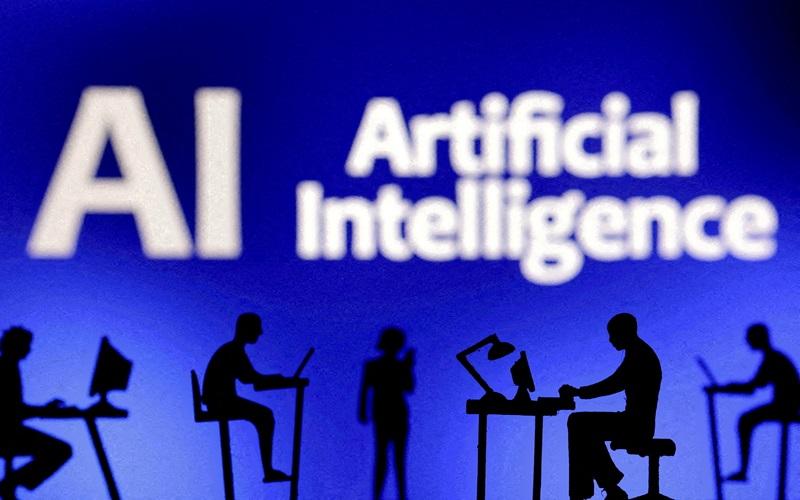AI adoption at 46% among Filipino workers—Jobstreet study

The use of generative artificial intelligence (AI) among Filipino workers is on the rise, according to a study by Jobstreet by SEEK.
At a media briefing in Taguig City on Wednesday, Jobstreet by SEEK hirer marketing manager Agustin Juanengo revealed the finding of the company’s Decoding Global Talent Report 2024, which was conducted with Boston Consulting Group and The Network.
The study is based on survey data from over 150,735 respondents around the world across more than 180 countries and 26 industries, including over 6,400 Filipino employees from various industry backgrounds, educational attainment, and age groups.
Among the key findings of the study was that 46% of Filipino respondents have reported that they use generative AI monthly in their work.
“When asked about the frequency of using GenAI in both their work and personal lives, 46% of Filipinos answered that they use GenAI monthly, slightly exceeding the global average of 39%,” said Juanengo.
Moreover, he said that Filipino employees ages 18 to 24 are twice as likely to use generative AI compared to other age groups at 64%.
Fifty percent of the respondents cited writing tasks as the main use of generative AI for work, while 58% cited skill development and learning as the main use of generative AI in their personal lives.
Among industries, those who work in digitalization and data sciences use generative AI most frequently at 71%, followed by those in information technology at 65%.
“When it comes to job impact, 82% of Filipinos believe that AI will change some aspects of their work, with 35% of Filipino workers anticipating a major impact that could eliminate or significantly transform their careers,” Juanengo said.
“Filipino talents in craft or physical work roles are the most concerned with the impact of AI, with 56% expecting significant changes to their roles,” he added.
Those working in technical or engineering fields are the least concerned, based on the study, with 28% to 30% of the respondents believing that their jobs will remain unaffected.
Despite the concerns about the effects of AI in some sectors of the job economy, over 70% of talent are willing to reskill to stay relevant during the age of AI, with 24% considering reskilling only when absolutely necessary.
“When it comes to reskilling, most Filipino talents have noted analytical skills and functional/job-specific skills as the top areas to focus on,” Juanengo said.
“Similar to their peers in Southeast Asia, most Filipinos prefer to engage in watching videos or self-study to learn new skills for their careers,” he said.
As AI adoption continues to rise, Jobstreet by SEEK is recommending that employers shift from traditional training to exploring strategic upskilling and reskilling practices.
The company is suggesting that corporations and organizations may partner with educational institutions, other employers, trade unions, and other stakeholders.
The job market platform also recommended enhancing generative AI adoption through specialized training programs and guided learning for employees.
“Though AI holds the potential to transform work as we know it, it’s not something we should fear. Through proper reskilling and upskilling with proper training, AI can serve as a reliable tool in bettering the way companies and organizations process their output, as well as improving efficiency among talent,” said Dannah Majarocon, managing director for Philippines at Jobstreet by SEEK. —RF, GMA Integrated News




